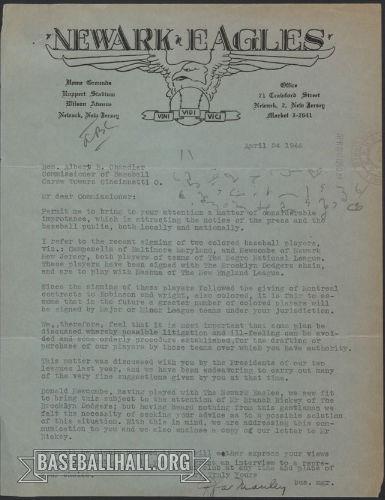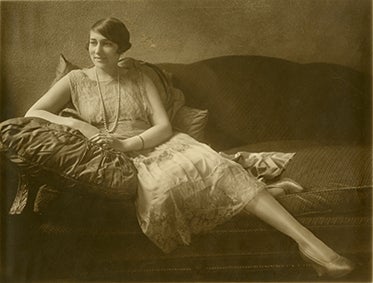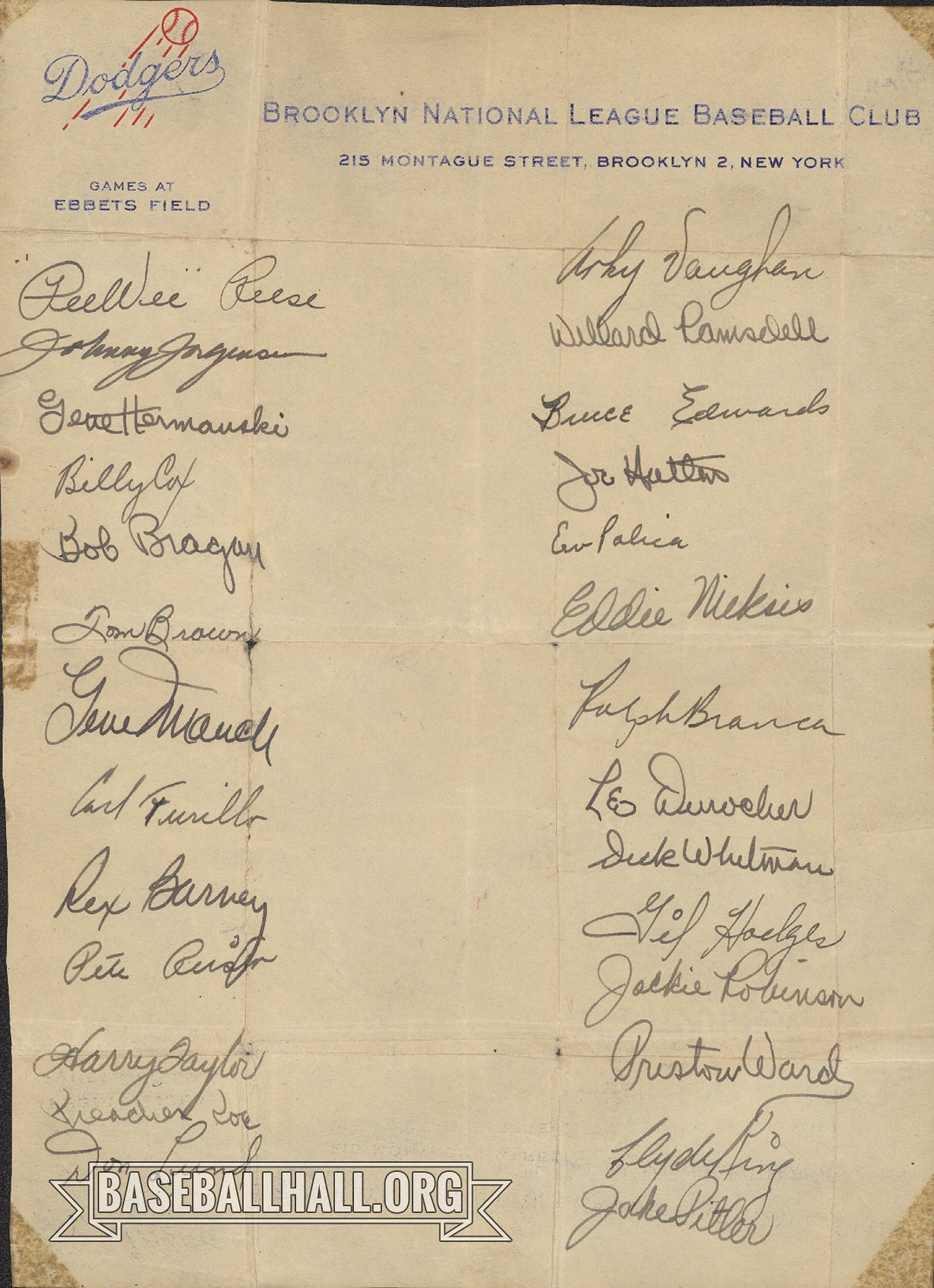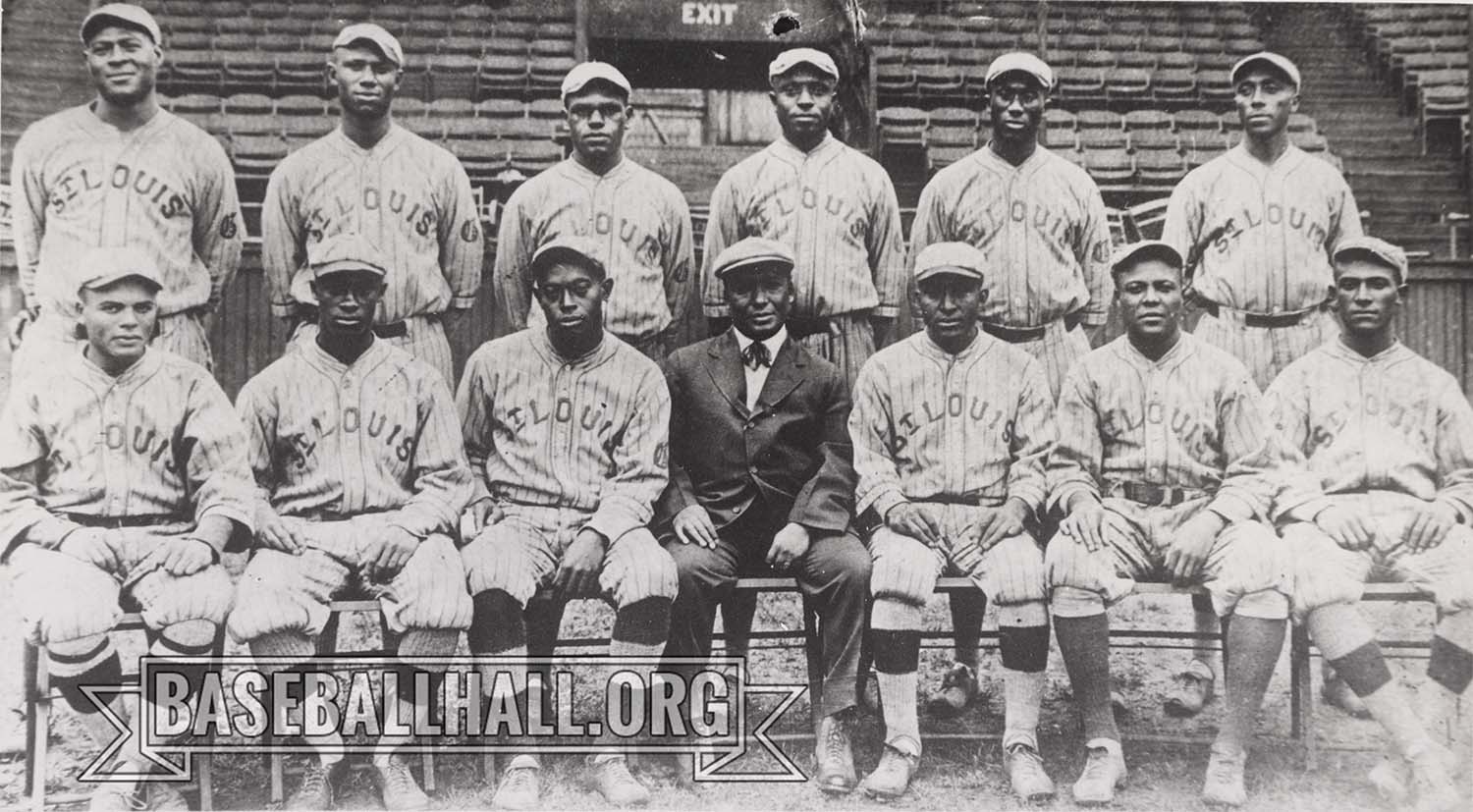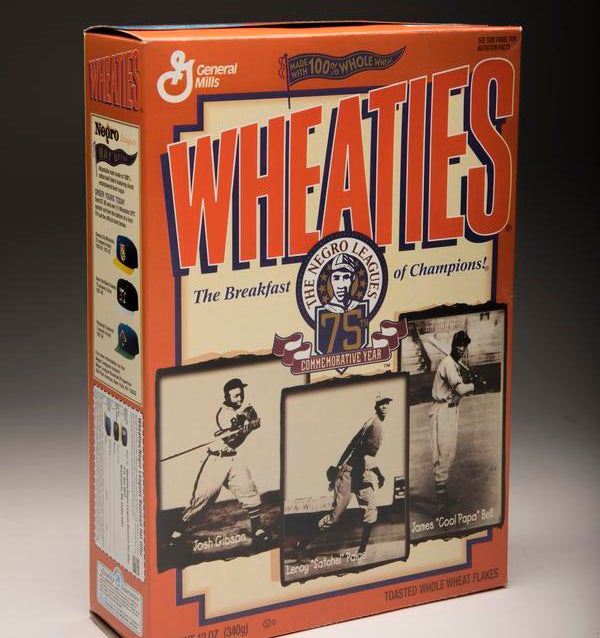#Shortstops: The business of the Negro Leagues
On Oct. 23, 1945, Jackie Robinson signed a contract with the Montreal Royals, one of the Dodgers’ farm teams. A year-and-a-half later he signed his first major league contract, and just a few days after that he made his debut with the Dodgers and broke baseball’s color barrier.
It was one of the most important sequences in baseball history, and opened the door for many of the game’s greats to finally show off their talents at the major league level.
It took some time, but a few months after Robinson debuted with the Dodgers, Bill Veeck, then-owner of the Cleveland Indians, approached the Eagles about purchasing the contract of Larry Doby. Effa Manley’s continued advocacy paved the way for fair compensation for Negro League teams, and these letters in the Museum’s collection demonstrate the strength and tenacity of the first woman to be inducted into the Hall of Fame.
Isabelle Minasian was the digital content specialist at the National Baseball Hall of Fame and Museum

